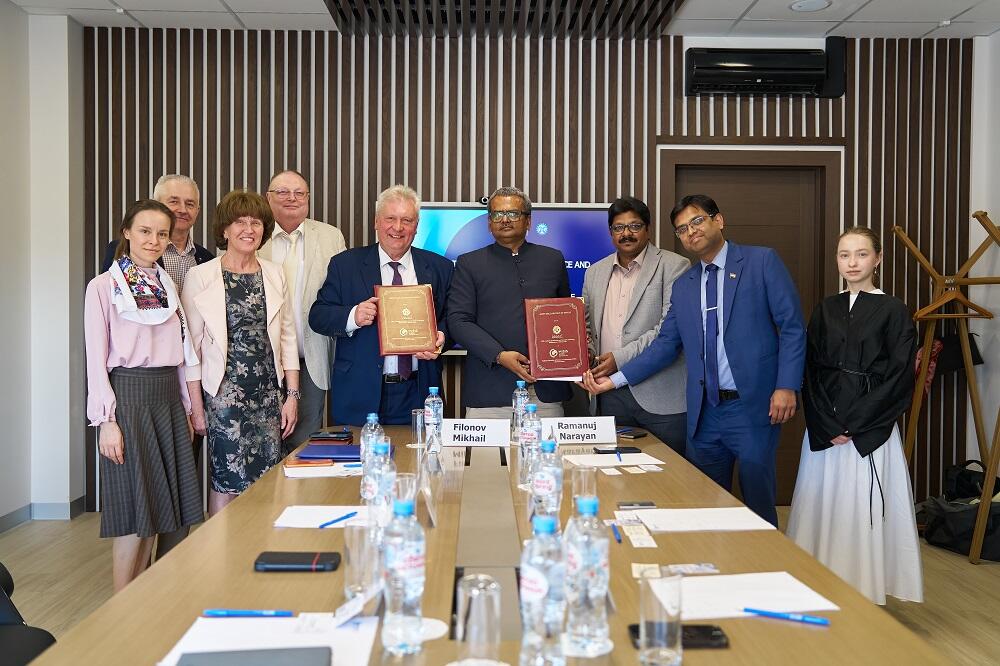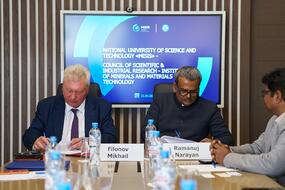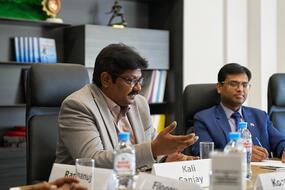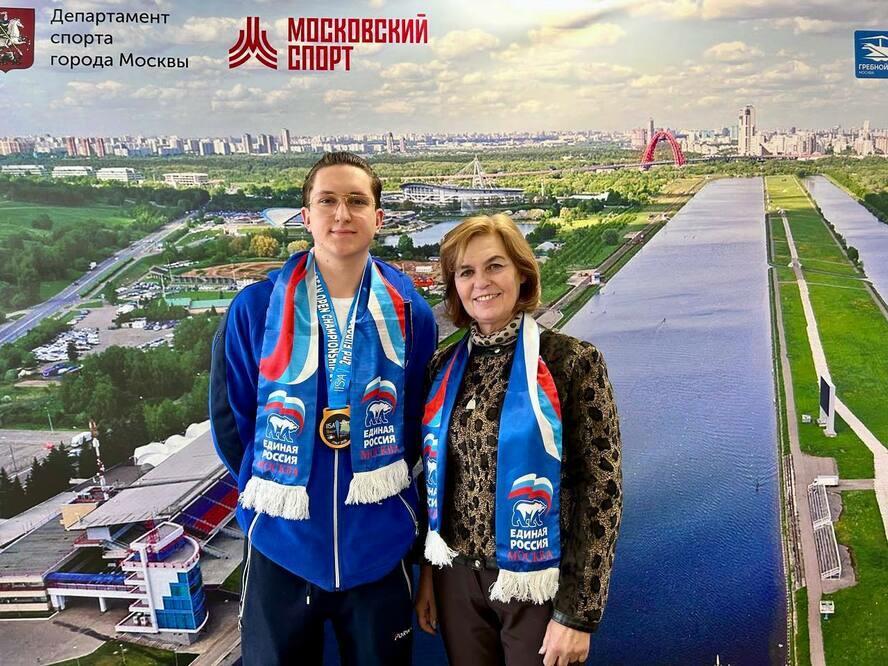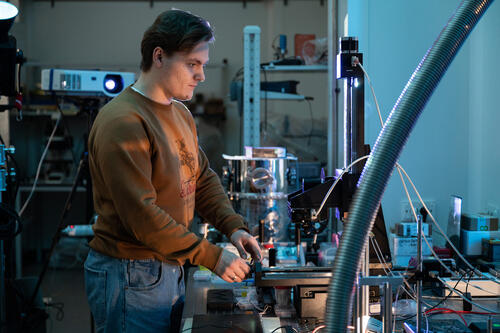A cooperation declaration in the fields of mining, extractive metallurgy, and electrometallurgy was signed by Mikhail Filonov, Vice-Rector for Science and Innovation at NUST MISIS, and Ramanuj Narayan, Director of the Institute of Minerals and Materials Technology (Bhubaneswar). The collaboration will be coordinated by the Director of the Information and Marketing Center of NUST MISIS Dr. Natalia Korotchenko and Chief Scientist and Head of the Hydro and Electrometallurgy Department at the CSIR-IMMT Dr. Kali Sanjai.
The Council of Scientific & Industrial Research (CSIR) of India is an autonomous society comprising 37 national laboratories, 39 outreach centers, and 3 units with pan-Indian presence, making it one of the world’s leading research organizations. CSIR covers nearly the entire spectrum of scientific and industrial work of national and international significance. The President of CSIR is Indian Prime Minister Narendra Modi. Among its members is the Institute of Minerals and Materials Technology (Bhubaneswar), with which NUST MISIS has signed the declaration.
“CSIR’s mission is to enhance the quality of life of the citizens of India through innovative Science and Technology, globally competitive R&D, by developing sustainable solutions and capacity building to fulfil dream of Atmanirbhar Bharat (Self-Reliant India). We are pleased to collaborate with NUST MISIS, a leading Russian university in materials science, metallurgy, minerals, and mining. We hope our partnership will yield fruitful results,” said Dr. Ramanuj Narayan.
During the visit, the parties discussed specific areas of collaboration, including student and faculty exchanges, joint research, and the organization of scientific events. The guests also explored the university’s advanced developments and laboratory infrastructure.
“The collaboration is aimed at joint research projects in the extraction and processing of valuable minerals, rare earth elements, as well as hydro- and electrometallurgy. In the future, we plan to expand cooperation in academic, research, and scientific areas,” said Mikhail Filonov.
